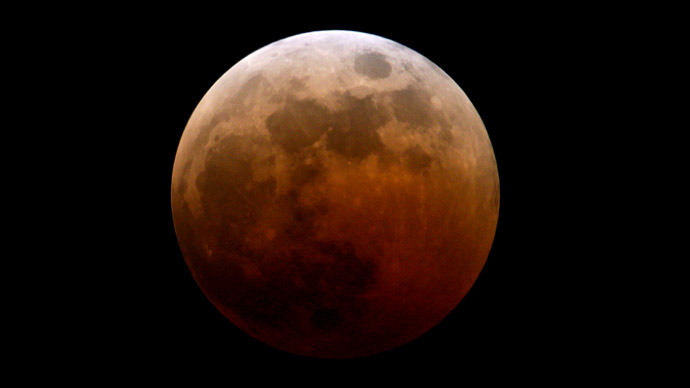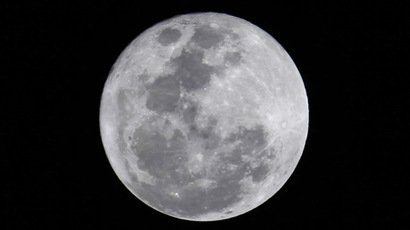'Blood moon' rising: Total lunar eclipse on April 14-15, first in rare series

A total lunar eclipse set to sweep the skies on April 14-15 and turn the moon blood-red just before midnight has got scientists excited and some Christians fearing for the end of days.
The coppery moon will be the first of two total lunar eclipses in 2014 as well as the opening act in a lunar tetrad – four total lunar eclipses in series.
A lunar eclipse occurs when the sun, Earth and moon align, causing the Earth's shadow to fall on the moon, darkening it. The crimson color the moon takes on during an eclipse comes about because of the refraction of sunlight through the Earth's atmosphere. This, incidentally, is the very same effect that causes sunsets to appear red.
The April 14-15 eclipse will begin at 21:20 GMT according to Sky and Telescope magazine. The other three eclipses in the "tetrad" will be in October, April 2015 and September 2015. Griffith Observatory will stream the event live.
A small group of Christians, however, view the upcoming event as a biblical prophecy sounding the end of times.
John Hagee, pastor and author of ‘Four Blood Moons: Something Is About to Change,’ cites Joel 2:31 as evidence, which says: "The sun will be turned into darkness, and the moon into blood, before the great and terrible day of the Lord come."
Proponents of this Biblical prophesy also say it coincides with two important Jewish holidays – Passover and Tabernacles – contributing to the significance of the event.
However, writing for EarthSky.org, Bruce McClure and Deborah Byrd say that it’s no surprise that full moons would coincide with important Jewish holidays, as the Jewish calendar is, after all, a lunar calendar.
“In any year, it’s inevitable that a full moon should fall on or near the feasts of Passover (15 Nissan) and Tabernacles (15 Tishri). Nissan and Tishri are the first and seventh months of the Jewish calendar, respectively,” they said.
“It is somewhat ironic that three of these four lunar eclipses are not visible – even in part – from Israel.”
The pair argue that while the idea of a blood moon is one that lends itself to the imagination, the term is actually applicable to pretty much any total lunar eclipse.
“It’s only in years where volcanic activity is pronounced that the moon’s face during a total lunar eclipse might appear more brownish or gray in color. Usually, the moon looks red.”
Tetrads, while occurring less often than a blue moon, are not entirely rare. According to Byrd, there will be a total of eight lunar tetrads between 2001 and 2100. The last lunar tetrad occurred in 1967-1968.
This eclipse also features an additional astronomical anomaly, which is likely to spark the imagination. Byrd says Mars will appear "as a fiery red 'star' next to the moon. Together red Mars and the red shadow on the moon's face should be a spectacular sight and an incredible photo opportunity."














